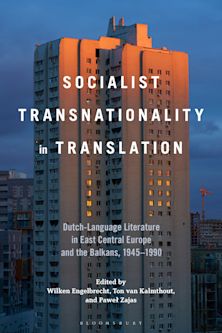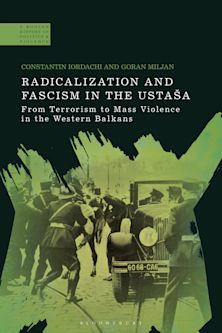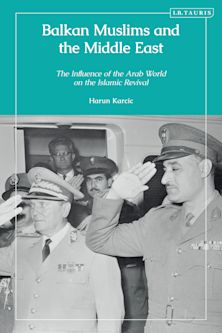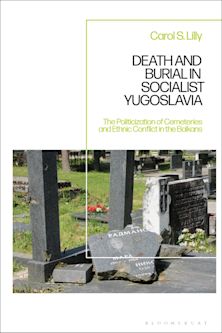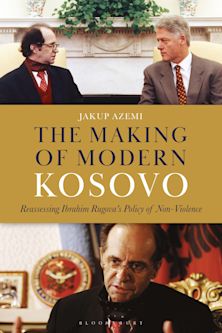Girlhood at War
Interpreting War and Liberation in Kosovo
Girlhood at War
Interpreting War and Liberation in Kosovo
Description
This book tells the true story of a young girl growing up during the Kosovo war and its immediate aftermath following Kosovo's liberation by NATO troops in 1999. Through her embodied experiences, the book exposes the tangible and everyday acts and events of the war, providing brutal insight into the impact of war and the politics of subjugation.
At the outset of the book (in 1998), Vjosa's view of the world, as a young child, is organized in clear dichotomies: the good Albanians and the evil Serbs; the brutal Serbian military shelling Albanian civilians and the angelic NATO airplanes bombing Serbian military sites. This Manichean worldview starts to unravel after Vjosa and her family are chased away from their home by the Serbian military and moved to the suburbs. There, surrounded by mostly poor and uneducated fellow Albanians, she gradually discovers the layers of her family's socio-economic privileges. Though unequipped with the language to verbalize it, she is tormented by the idea that her family's comparatively higher socio-economic status is the reason why they are spared by the Serbian military.
When the war ends in 1999, and the NATO tanks fill the narrow streets of her hometown as Serbian military tanks leave, Vjosa believes she received her own 'happily ever after'. She celebrates her thirteenth birthday happily wearing a US military uniform, holding an unbearably heavy unloaded gun as she becomes the favorite interpreter of the American NATO troops. She spends several months after the war occasionally translating between angry Albanians who now seek revenge against Serbs and NATO troops who insist on not picking sides; showcasing the impossibility of (re)building Kosovo with “both-sides-ism” becoming the modus operandi of the international intervening structures.
Table of Contents
Foreword by Aida A. Hozic
Acknowledgments
1. Saša, the Serbian Policeman
2. A Slap in the Face
3. We Are At War
4. The Night of the NATO Bombing
5. The Morning After
6. Hajde Da Ludujemo
7. The Crime
8. The Ladder, the Sniper and the Blue Jersey
9. I Can't Breathe!
10. All Bread is Sacred; All Lives Are Sacred
11. Of Guns and Bread
12. They Will Find Me At Home
13. Whatever We Can Buy. Whatever They Can Sell
14. Road Trip
15. To the End of the World
16. Long Hair is Trouble
17. Someone Here is Insane
18. The Basement
19. The Gift of Death
20. Politics of Friendship
21. Everyone Wants Out Sometimes
22. A Child's Play
23. Happily Ever After
24. The Americans
25. Adulthood Comes with Responsibilities
26. Victims and Perpetrators
27. NATO Does Not Pull Out
28. Statues Fall, Statues Rise
29. Of Books and Rage
30. The Crime Scene
31. Kiss Dejan!
32. Little Red Riding Hood
Epilogue by Shkëlzen Gashi
Product details

| Published | Sep 04 2025 |
|---|---|
| Format | Ebook (PDF) |
| Edition | 1st |
| Extent | 232 |
| ISBN | 9798765154489 |
| Imprint | Bloomsbury Academic |
| Series | Creative Interventions in Global Politics |
| Publisher | Bloomsbury Publishing |
Reviews

ONLINE RESOURCES
Bloomsbury Collections
This book is available on Bloomsbury Collections where your library has access.












